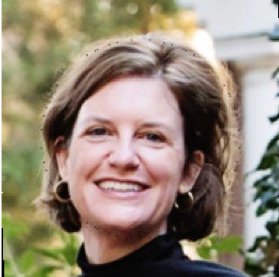
Leaders In Energy and Potential Energy DC co-hosted Innovative Clean Energy Project Financing – an event held Thursday, January 24, 2019, at Clarendon Presbyterian Church in Clarendon, Virginia.
Janine Finnell, Executive Director, Leaders In Energy, addressed the 100+ attendees. This was Leaders In Energy’s 5th annual finance event in the DC region. She kicked off the event by stating when there’s money to be discussed people come out. “We’re creating a creation space to connect people for progress and move forward.” she said.
Reverend David Ensign thanked the crowd for being at the church which supports community building events such as this event. He expressed interest in energy efficienc for their historic building.
Dave McCarthy, Executive Director, Potential Energy DC introduced and moderated Panel 1: Clean Energy Financing Mechanisms and Projects. Scott Dicke, SRS’ C-PACE Program Director, lead the panel about Commercial Property Accessed Clean Energy (C-PACE) financing. “There’s a movement in Virginia being led by Arlington County, Virginia’s first county with C-PACE
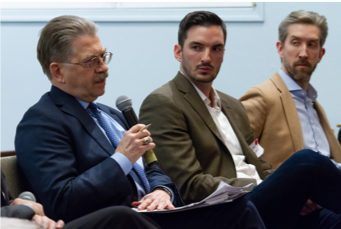
Dave introduced Mark J Riedy, Partner and Chair at Kilpatrick Townsend & Stockton LLP, Energy, Project Finance and Clean Energies Practice. He is a project financelawyer currently working on a $10 billion (not million) project. “This is not corporate finance which puts up a corporate or personal guarantee – project finance has no guarantee so the liens are placed on the project equipment and cash flowing contracts.” He explained about debt/equity ranges, credit enhancements, equity stack of projects with the goal being you are trying to keep as much ownership interest in the project. A project might start with a diluted ownership but could change to a non-diluted ownership after some years. Mark sees a trend of renewables being conventional so you’re now looking at 70/30 or 80/20 debt/equity ratios. Energy storage can piggyback on conventional loans but if the project is only storage then you’re looking at 60/40 to 40/60 debt/equity ratios. In regards to the DC area, he is seeing “solar+storage” projects financed since DC is driving alot of new projects with the city’s net zero goal by 2032.
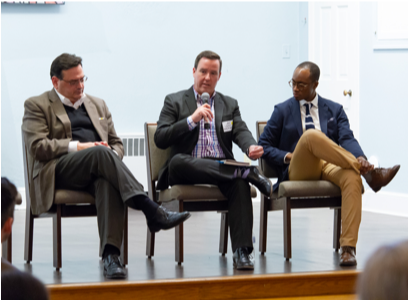
After a break Janine introduced and moderated Panel 2: Funding Opportunities for Clean Energy Projects. Adler Prioly, Director of Clean Energy Finance at Reinvestment Fund, started off the panel. He leads Reinvestment Funds underwriting for debt financing for smaller projects, oftentimes in underserved areas and in the energy generation, energy efficiency, water and resilience space. He is actively looking to finance projects in the DC area and mid-Atlantic. Next up, Green Banks. They are not financial institutions but incentives since they leverage the Green Bank’s money with private investors. Jay Wilson, Program Manager, DC Department of Energy andEnvironment spoke about the newly created DC Green Bank. He wrote DC’s Clean Energy plan of how the city is going to get to net zero by 2032. In his perspective in order to achieve net zero a city needs regulation, educate the market and provide incentives. Existing buildings are very important to reduce energy towards the city’s net zero plan so that’s a prime market for the DC Green Bank to service. The third speaker Musa Asad, Managing Director and Founder, BGB Investment Partners introduced himself as a worldwide project developer on both the equity and debt side. He is now working on Opportunity Zones and will complete the evening’s presentation about this new project finance incentive. “It is not a finance program but a capital gains tax deferral program” he said. How does it connect with clean energy? Since this is a place based incentive, then it’s driven by real estate investments – the green building space overlaps with clean energy projects. The regulatory framework is still evolving but it is a live program – a tax shelter program. A developer can mix this incentive with other programs such as C-PACE. Amazon’s H2Q in Crystal City is located in an Opportunity Zone designated by Virginia – an interesting fun fact!
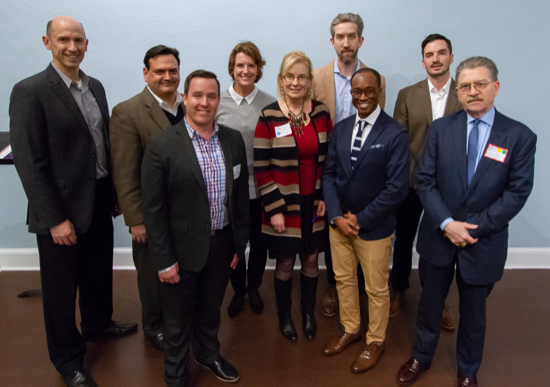
After the presentations, the evening continued with more fun facts and networking. This is an exciting time for clean energy and 100+ people left with the event with information about how to get clean energy projects up and running.
Molly Medlin recently joined Potential Energy DC, an incubator for clean energy startups in the DC region. She brings 20+ years of experience with innovative energy efficiencies in sustainable real estate projects – new and existing buildings in over 10 states. While living in Los Angeles she started her own real estate ventures while having jobs marketing various entertainment brands – including Dreamworks Home Videos. She began her career in sports marketing and traveled on the IndyCar racing circuit. She and her family support St Jude Children’s Hospital.


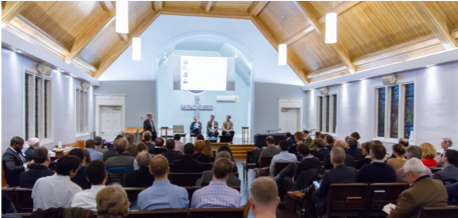
Leave a Reply